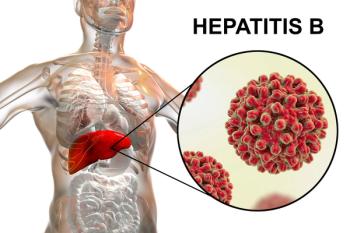
The Rise of Autoimmune Hepatitis Worldwide: A Closer Look
A new meta-analysis shows a consistent increase in the incidence and prevalence of autoimmune hepatitis (AIH), suggesting that it may become a significant global health concern. Published last month in
The study was funded by the National Research Foundation of Korea, where corresponding author Dong Keon Yon, M.D., of the Department of Paediatrics at Kyung Hee University College of Medicine, and colleagues from Greece, Iran, South Korea, Spain, Sweden, United Kingdom and the United States analyzed 37 studies representing 55,839 patients with AIH from 18 countries.
AIH, a rare but serious condition, is a chronic liver disease characterized by inflammation of the liver due to the body's immune system mistakenly attacking healthy liver cells. Although hypothesized to be due to the loss of immunologic tolerance in genetically predisposed individuals, the immune-mediated disease affects all people of all ages, genders and ethnicities.
Patients can have a range of symptoms, from asymptomatic to chronic illness or acute liver failure. According to the
Yon and colleagues collected data from various sources, including medical databases, research articles, and national health statistics. After a thorough screening process, a total of 37 comparative studies were included in their meta-analysis, representing a wide range of countries and populations. The data from these studies were then pooled and analyzed to estimate the global incidence and prevalence of autoimmune hepatitis.
The results of the study revealed that the global incidence of AIH has been steadily increasing over the past five decades, hitting 1.28 cases per 100,000 person-years and 15.65 cases per 100,000 inhabitants.
Similarly, the meta-analysis also found an upward trend in the prevalence of AIH. In 1970, the estimated prevalence rate was 9.95 cases per 100,000 population, compared to 27.91 cases per 100,000 population in 2022.
Yon and colleagues also identified regional variations in the incidence and prevalence of AIH. Western countries, particularly those in North America and Europe, had higher rates of AIH compared to other regions. This could be attributed to various factors such as differences in genetic predisposition, environmental triggers and access to healthcare.
The researchers also looked at gender distribution of AIH. As with other autoimmune diseases, AIH appears to disproportionately affect women.
Newsletter
Get the latest industry news, event updates, and more from Managed healthcare Executive.























